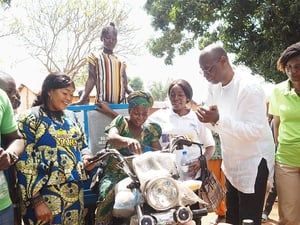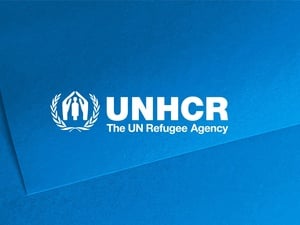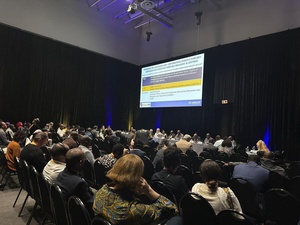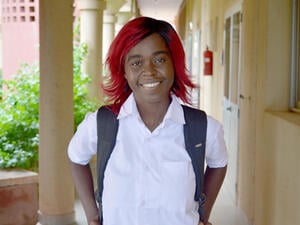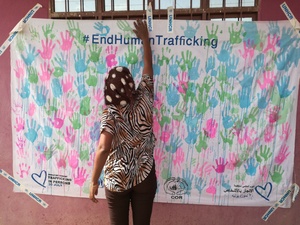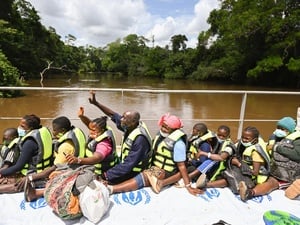Côte d'Ivoire: Assistant High Commissioner's focus
Côte d'Ivoire: Assistant High Commissioner's focus
Assistant High Commissioner Kamel Morjane is today in Accra, Ghana, where he is meeting with UNHCR country representatives from throughout West Africa. Mr. Morjane is on the fifth day of a six-day mission to the region and has been focusing much of his attention on the worrisome situation in Côte d'Ivoire and its impact on neighbouring countries. UNHCR is particularly concerned about the plight of tens of thousands of refugees caught up in the recent fighting in Côte d'Ivoire, many of them from neighbouring Liberia - itself embroiled in conflict.
In all, there were 72,000 refugees in Côte d'Ivoire prior to the beginning of the conflict in mid-September, the majority of them Liberians. An estimated 44,000 people have crossed into Liberia since the fighting spread to western Côte d'Ivoire two and a half weeks ago. Of those, some 29,000 were Liberians returning home, while the remaining 15,000 were Ivorians seeking refuge in Liberia.
The latest round of fighting in western Côte d'Ivoire erupted on November 28. The western region, which hosted 45,000 mostly Liberian refugees before the conflict, is now largely inaccessible to humanitarian agencies and we are extremely concerned about the fate of those remaining there. The situation in the western area is still confused and volatile. We fear that refugees there will become targets for armed attacks and forced military recruitment. There have already been reports of the latter, prompting Mr. Morjane over the weekend to warn refugee groups in Côte d'Ivoire to to resist any attempts to involve them politically or militarily in the simmering conflict.
He also told worried refugees in Abidjan that despite the difficult situation in Côte d'Ivoire, UNHCR will do everything it can to find safe solutions for them. For example, voluntary repatriation to Sierra Leone is being promoted for a small group of about 500 Sierra Leonean refugees in the country. Possible solutions for the Liberians are much more difficult, but could include early return to Liberia and temporary evacuation to a safe third country in West Africa. Negotiations on these solutions are continuing. On Saturday, 12 of 27 Liberians who were returned by air to Monrovia were arrested upon arrival. UNHCR is very concerned about their security and is seeking their release.
In another development, reports from southern Côte d'Ivoire said large population movements took place over the weekend around the coastal town of Tabou following rumours of impending attacks. Groups of people were seen heading towards the Liberian border at Prollo, 28 km west of Tabou.
UNHCR is particularly concerned by reports that loyalist forces have attached explosives to the Prollo bridge, leading to the Cavaly River on the way to the Liberian border. This could pose a grave danger for refugees and others using the bridge. Last week, Ivorian troops detonated hand grenades wired to a UNHCR ferry in Prollo, saying they wanted to prevent rebels from crossing in and out of Liberia.
After leaving Abidjan on Saturday, Mr. Morjane travelled to Liberia, where he met with government officials and visited the VOA camp for Sierra Leonean refugees near Monrovia. The No. 3 UNHCR official arrived in Accra on Sunday evening and travels later today to Lomé, Togo, the final stop on his four-nation mission. He will return to Geneva on Thursday.


